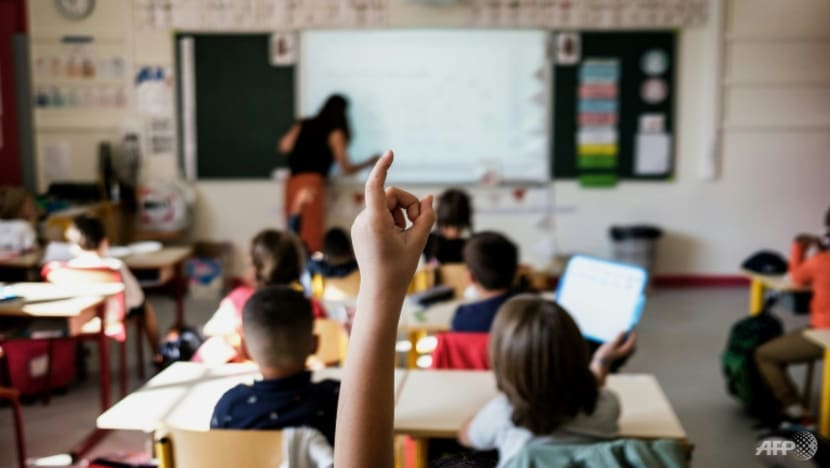Smart enough to pass prestigious US business, law exams. Will viral AI chatbot ChatGPT destroy education?
ChatGPT can come up with answers to pass graduate-level exams from top universities, although not with particularly stellar marks.

AI tools could change the traditional rules of the classroom. (Photo: AFP/Jeff Pachoud)
CALIFORNIA: The viral ChatGPT chatbot may be smart enough to generate answers to pass prestigious graduate-level examinations in the United States – although not with high marks – but it has raised fears that students will outsource their learning to artificial intelligence.
Launched about two months ago, the chatbot developed by American AI research firm OpenAI has been causing a stir. It can generate text that closely mimics human-like conversation based on simple user prompts.
The results have been so impressive that some educators have warned that it could lead to cheating and even change traditional classroom teaching methods.
Now, a new battle is emerging over whether ChatGPT will be a powerful learning tool, or an aid that prevents students from learning how to write or even think for themselves.
BAN CHATGPT, OR INCORPORATE IT INTO LEARNING?
While some educators have banned the chatbot from their classrooms, others see the benefits of incorporating AI technology into their teaching.
“I think we're looking at something like when Google became this amazing search engine that appeared on the landscape. It sort of changed how we engaged with the Internet,” said Dr Victor Lee, associate professor at Stanford University’s Graduate School of Education.
ChatGPT's ability to crank out seemingly well-researched, well-written essays in seconds has seen plenty of reports of students of all ages claiming the chatbot's writing as their own.
The reaction from some corners of the education sector has been swift.
Public school systems in New York City, Los Angeles and Seattle are among those in the US that have already banned ChatGPT on their networks or devices.
A new app developed by a Princeton University student that attempts to detect ChatGPT was downloaded 30,000 times in the first week.
However, completely banning ChatGPT may be futile as students will inevitably figure out ways to work around it, said observers.
Some educators believe incorporating the chatbot into learning is a better approach.
Philosophy professor Antony Aumann of Northern Michigan University said a big part of philosophy is stating your position and finding responses to objections.
“And so the chatbot is actually really good at coming up with objections to your position. You feed it in and you ask it, ‘What might someone say who disagrees with me?’” he added.
“And it often has like obvious things, but sometimes pretty interesting and curious things to say. And I want to direct my students down that avenue.”
Related:
START OF AN ERA OF ADVANCED AI
Meanwhile, OpenAI is exploring potential solutions to help education institutions and companies harness its capabilities.
There are also plans to add a watermarking feature to ChatGPT, making it easier to detect AI generated content.
Some observers believe ChatGPT is just the beginning of an era of much more advanced AI, and there is still a lot of research to be done on the potential impact.
"There is this rich opportunity for this to be a means for developing broader AI literacy,” said Dr Lee, who is part of a team at Stanford University looking at the role of generative AI, such as ChatGPT.
“And as this becomes part of the fabric of our day-to-day lives, that's going to be fairly important.”

















